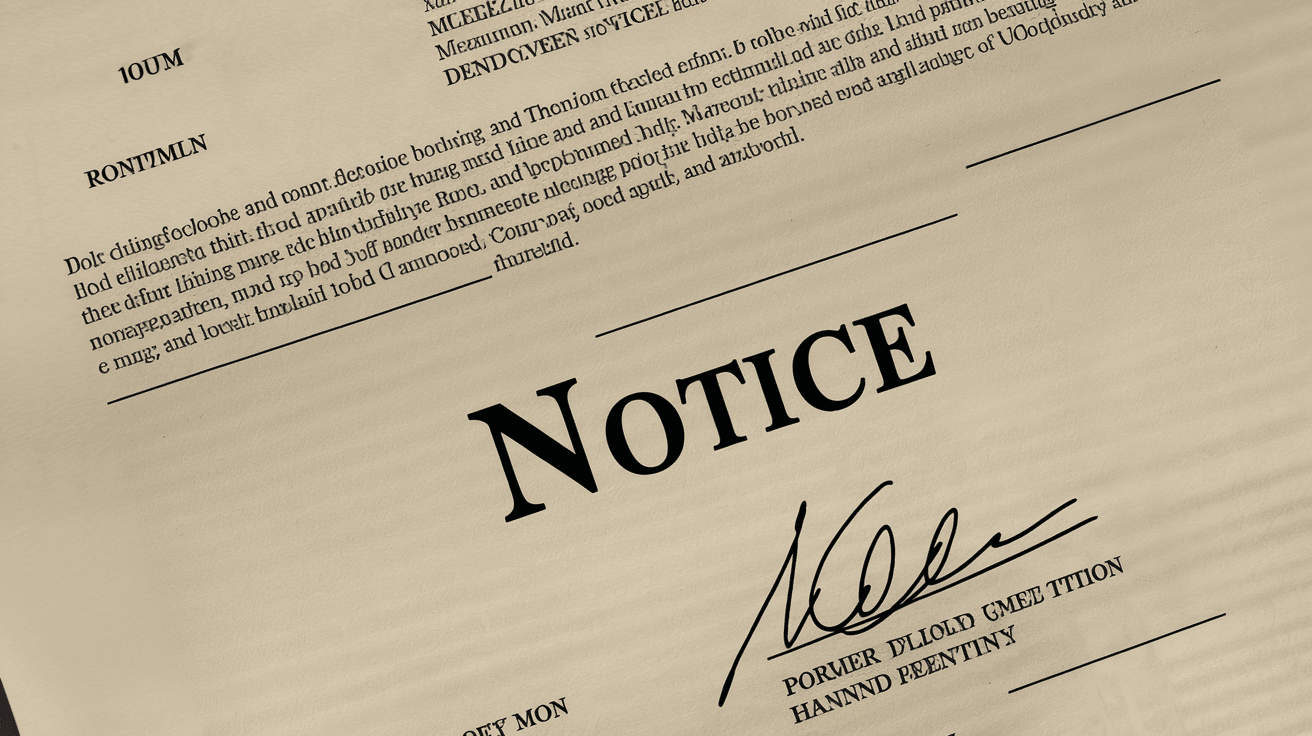Getting changes to court orders might seem hard, but it’s a normal part of life after divorce.
Do you know that you can ask the court to look at your case again?
Thousands of parents feel stuck with court orders that don’t match their real lives. Maybe your work schedule flipped upside down, or your child’s needs changed.
Here’s some good news: You’re not actually stuck. Those court orders can change when your life does.
This guide will walk you through post-judgment modifications – what they are, when you can get them, and how they work.
No legal puzzles or tricky terms. Just clear steps to help you understand your options better.
What are Post Judgement Modifications

Post-judgment modifications are changes made to court orders after the final judgment in a case. These changes adjust the original terms to match new situations. Courts allow these updates when facts show a need to change the original ruling.
Some common reasons for these changes include:
- One person’s income has gone up or down a lot
- A child’s needs have changed due to health or education
- Someone wants to move to a different city or state
- Work schedules have shifted and affect current plans
The court needs clear proof before making any changes. Both parties must share current facts about their money and living conditions. A judge reviews all the details to make sure the changes are fair and needed.
To ask for these changes, you must file papers with the court. The other person gets a chance to agree or disagree with your request. Local rules set the steps for this process in each court.
Legal Basis for Post-Judgment Modifications
Courts allow changes to legal judgments when there are big changes in life situations. This includes shifts in money, health, or where people live that affect following the original rules.
When children are part of the case, courts focus on what helps them most. They look at the child’s emotional health, physical needs, and growth when making any changes to the original decision.
Florida’s family laws, found in Chapter 61, set the rules for changing court orders. To get a change in child support, custody, or alimony, people must show proof of major life changes.
Sometimes, courts update orders when the old decision no longer works fairly. They can fix situations where one person’s actions have made things unfair to others.
Usually, the same court that made the first decision handles any changes. But if someone moves far away, a different court might take over the case.
The court makes sure all changes match state laws about taking care of children. They want to support both parents being involved while keeping things steady for the child.
Steps in the Modification Process
The modification process ensures that changes are made thoughtfully and effectively. Each step is designed to maintain consistency, clarity, and the best outcome for all involved.
The steps in the modification process are written below:
1. Filing a Motion

Filing a Motion for Modification means asking the court to change an existing order. Think of it like sending a formal letter to the court. This request needs good reasons, such as:
- A big change in income
- Job loss
- Medical problems
- Moving to another city
2. Serving a Notice

Serving Notice means making sure the other person knows about the request. It’s like sending a certified letter that requires a signature. This step matters because:
- The other person needs time to prepare
- They can agree or disagree with the changes
- The court wants proof they got the notice
3. Documents Required in a Court

Financial Documentation tells the court about money matters. The court needs proof of the following:
- How much money comes in each month
- Regular bills and expenses
- Any debts being paid
- Changes in work or income
4. Meeting with the Judge

The Hearing works like a meeting with the judge. Both sides get to:
- Tell their story
- Show their proof
- Answer questions
- Explain their needs
5. Final Decision of the Judge

The Court’s Decision comes after the judge looks at everything. The judge checks:
- If the reasons make sense
- If the proof supports the request
- What helps both sides
- What follows the law
6. Implementation of New Rules

When changes start, everyone must follow the new rules from the date the judge picks. The court writes down:
- What changed from the old order
- What each person must do
- When to start the new rules
- How to handle the changes
Different Types of Post Judgement Modifications
- Child Custody Modifications: If there is a significant change in circumstances, such as a parent relocating, a change in the child’s needs, or a parent’s ability to care for the child, a modification to the custody arrangement may be requested. Courts will assess whether the change is in the child’s best interest.
- Child Support Modifications: Modifications to child support are often sought if there’s a substantial change in the financial situation of either parent, such as a job loss, an increase in income, or changes in the child’s needs. The court evaluates the parents’ income, expenses, and the child’s needs to determine if adjustments are needed.
- Alimony (Spousal Support) Modifications: Alimony payments can be modified if there are significant life changes, such as the paying spouse’s income increase or decrease, the recipient spouse’s remarriage, or a change in the recipient spouse’s financial status. Courts may also adjust alimony based on the duration of the marriage or a substantial change in either spouse’s health.
- Parental Relocation Modifications: When one parent wants to relocate with the child, the court may modify custody or visitation orders. A relocation modification typically occurs when a parent moves to a distant location, which affects the current parenting plan, and the other parent seeks changes to maintain regular contact with the child.
- Modification of Parenting Plans: If the current parenting plan no longer serves the child’s best interests due to changes in the child’s needs or a parent’s circumstances, the court may adjust the plan. This can include changes to time-sharing arrangements or decision-making responsibilities for the child.
These modifications are often necessary when circumstances change, and they require a legal process to ensure the new arrangements are fair and in the best interest of the child or the affected parties.
How Courts Decide on Modifications

Courts look at several key factors when making decisions about changing posts. The main focus stays on what serves the child’s needs best.
The judge checks if there are big changes in the parents’ lives. These changes might include a new job, moving to a different city, or health problems. Each change gets carefully reviewed.
Money matters play a role, too. The court wants to know about both parents’ income levels. They check job changes, medical costs, and other expenses that affect child care.
The child’s current living setup gets attention from the court. This includes school performance, friends, and daily routine. Courts prefer to keep things steady for kids when possible.
Both parents must show proof of their claims in court. Bank records, work papers, and school forms help judges make choices. Medical reports or counselor notes can also help show what the child needs.
The court also checks how well parents work together. Good communication between parents often leads to better results. Bad behavior or refusing to follow past orders may affect the final choice.
Safety remains a top concern for judges. They check for any risks to the child’s well-being. This includes looking at each parent’s home life and the people around the child.
Key Reasons for Seeking Modifications
People ask courts to change existing judgments for several valid reasons. Life changes often make previous court orders less practical or fair. Here are some common situations that lead to modification requests:
- Changes in Income: A person’s earnings might increase or decrease due to job loss, salary changes, or health issues. When this happens, they might need to adjust support payments to match their current financial situation.
- Child’s Needs Change: As children grow, their needs shift. School expenses might go up, or they might need different medical care. These new needs often require changes to existing support arrangements.
- Relocation Requirements: Sometimes, a parent needs to move for work or family reasons. This can affect visitation schedules and parenting time, making changes to the original judgment necessary.
- Medical Situations: Health problems can limit someone’s ability to work or care for children. They might need more financial help or different arrangements for child care and support.
- Schedule Conflicts: Work hours might change, or children’s activities might not fit with the current visitation plan. Parents often seek modifications to make schedules work better for everyone.
- New Family Obligations: When parents start new families or take on care of other relatives, they might need to adjust their current arrangements to balance all responsibilities fairly.
Impact on The Parties Involved
| Aspect | Changes and Responsibilities |
|---|---|
| Payment Structure | The payment structure might shift based on new court orders. They may need to adjust their monthly amounts to match what the judge decided in the modification. |
| Living Patterns | Living patterns often need changes. The person might have to follow updated rules about when and how they handle their obligations. This takes time to learn and puts extra stress on daily life. |
| Financial Planning | Financial planning becomes more complex. They must build a fresh budget that fits the modified orders, which means looking at income and costs in a new way. |
| Record-Keeping | Record-keeping grows more important. The court wants proof that they’re meeting all the new rules. They need to save receipts, write down actions, and track everything they do. |
| Meeting Deadlines | Meeting deadlines becomes a bigger focus. Modified orders often come with strict time limits. Missing these can lead to more court problems. |
| Providing Proof of Compliance | They might need new ways to prove they’re following orders. This could mean sending regular updates, showing payment records, or giving other evidence to the court. |
Common Challenges in Getting Modifications
- Proving Changed Circumstances: The court needs clear proof that things are different now compared to when the first ruling happened. Simply wanting a change isn’t enough – there must be facts to back it up. For example, a job loss or serious health issue could count as a real change.
- Time Limits Matter: Courts have strict deadlines for asking for changes. Missing these deadlines can stop the whole process before it starts. Each state has its own rules about when someone can file for modifications.
- Getting Good Documents: Having the right paperwork is essential. Many requests fail because people don’t include all the needed forms or information. The court wants to see exact numbers and solid facts to support the request.
- Cost of Legal Help: Paying for a lawyer can be expensive. Some people try to handle things on their own, but this often leads to mistakes. Even small errors in the paperwork can cause big problems for the case.
- Finding the Other Party: Sometimes, the other person has moved or doesn’t want to be seen. The court needs both sides to know about the request for changes. This can slow down or stop the process if one person can’t be located.
Conclusion
Think of court orders like a GPS – sometimes, you must change your route when life takes unexpected turns. That’s what post-judgment modifications are all about.
From bigger paychecks to new jobs in different cities, these changes matter when you’re looking to update court orders.
But here’s the truth: Courts take these updates seriously. Your reasons need to be solid, like building blocks that support your case.
No random changes are allowed! Every shift in custody or support must put your children’s needs first.
Life brings new situations that affect court orders. When this happens, you need to follow the right steps. Work with a lawyer who knows family law well. This helps you prepare your request in the best way possible.








